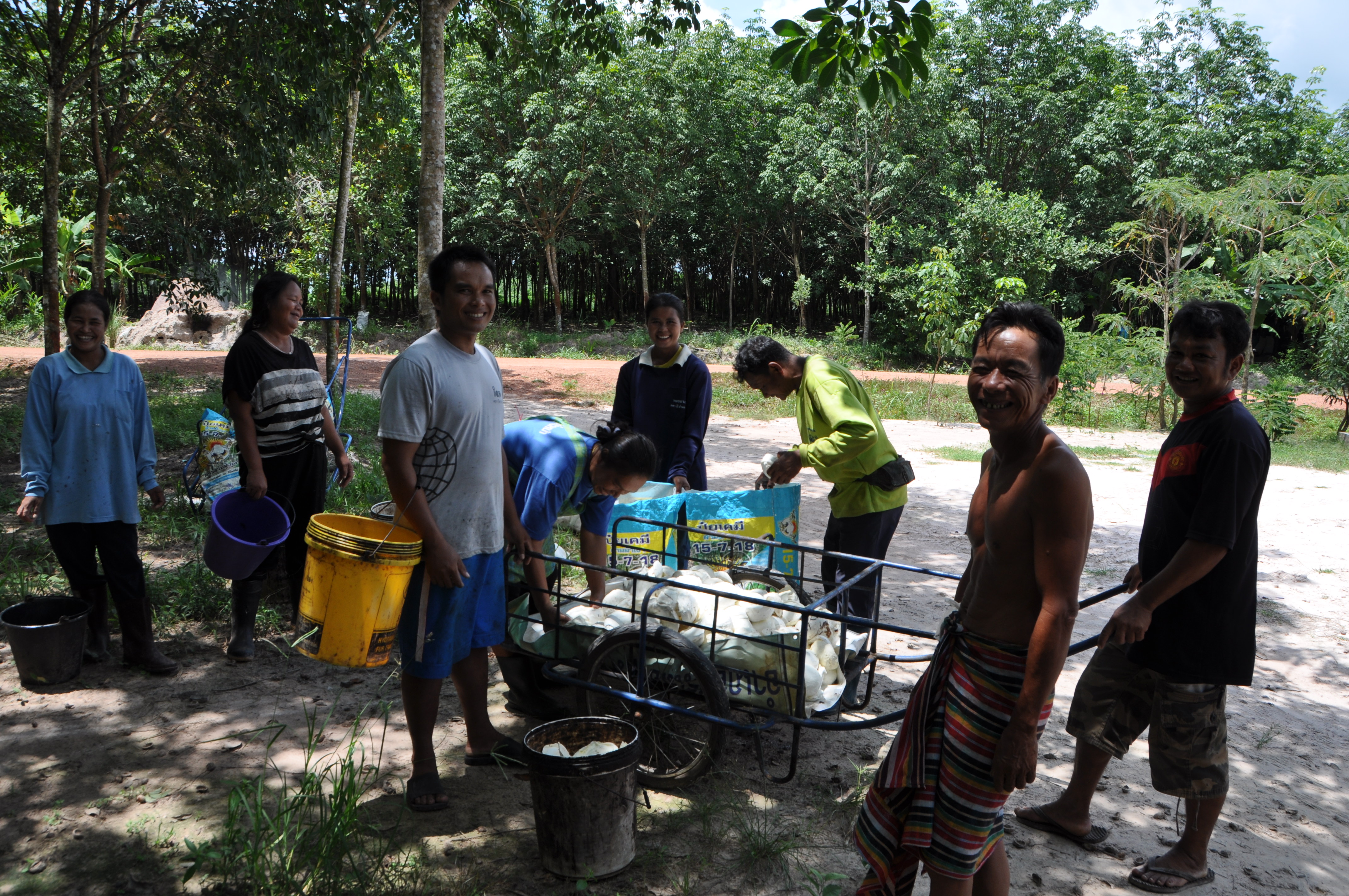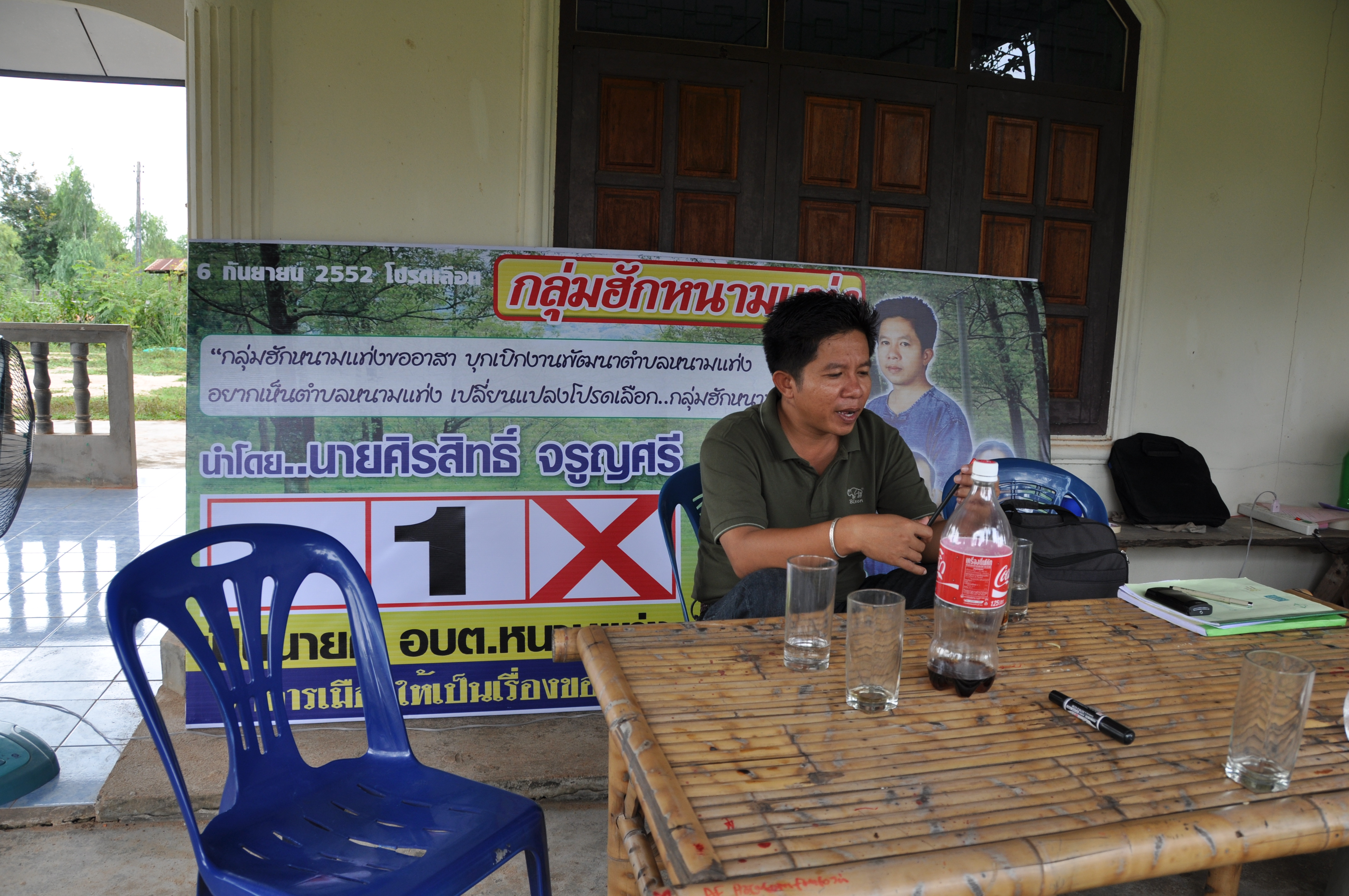- Project Leader : Fujita Wataru (Osaka Prefecture University, School of Sustainable System Sciences)
- Collaborators : Viengrat Nethipo (Chulakongkorn University, Faculty of Political Science)
- : Saowanee T. Alexander (Ubon Ratchathani University, Faculty of Liberal Arts)
- : Prasongchai Setthasuravich (Mahasarakham University, College of Politics and Governance)
- : Okamoto Masaaki (Kyoto University, Center for Southeast Studies)
Outline of Research
This research analyzes the changes in farmers’ political awareness and behavior in rural areas of Northeast Thailand in relation to livelihood, lifestyle, and ecological environments. The members will be engaged with statistical analysis and qualitative case studies in the research sites regarding the transformation of livelihood economy, agriculture, lifestyle, conditions of natural environments and resources, as well as farmers’ non-traditional political behavior and organizations. The results will be intensively discussed and theoretically examined in a series of meetings held at the Bangkok Liaison Office of CSEAS, Kyoto University. External experts will be invited to the meetings in order to share information and deepen theoretical arguments.
Description
The rural areas of Northeast Thailand, or Isan, have long been thought of as the poorest area of the country. However, recent price rises in rubber and cassava have accelerated the ‘urbanization’ of the farmers’ lifestyles and upgraded their socio-economic status. They are no longer ‘poor.’ This research investigates the relationship between socio-economic changes in rural society and the consequent degradation of natural resources, disconnection from ecological environments, and increased dependence on globalized market economy with the political awareness and behavior of rural populations. Special attention is given to active commitments to the so-called ‘red shirt’ movement demanding democracy and electoral politics, with strong support to former Prime Minister Thaksin Shinawatra.
The members plan to conduct statistical analyses of the relationship between the distribution of communities that were actively committed to the ‘red shirt’ movement and various socio-economic and environmental factors. They will also in-depth case studies of both red-shirt active communities and non-active communities, and other particular cases witnessing changes in rural social organization or farmers’ consciousness from a traditional patron-client orientation to more industry, policy, and rightsbased orientations.
There have been studies about the rise in rural consciousness of democracy. However, the socio-economic and ecological contexts of this rise have not yet been investigated. In this study, the interrelationship between the changing lifestyles in rural areas and the increasing awareness of democracy and its accompanying sense of rights among farmers is examined in detail both by statistical and qualitative research as described above.
The statistical and field-based studies are carried out principally by other budgetary sources, including a KAKENHI grant from the Ministryof Education. In this IPCR project, the members will hold a series of meetings to intensively discuss the results of the above research, analyze data from the various theoretical viewpoints of members’ academic backgrounds, including political science, social linguistics, and environmental sociology and anthropology. Non-member experts, particularly those staying in Thailand, will also be invited in order to widen the scope of arguments. By doing so, we will elucidate the political-ecological situation of rural areas in ‘semi-developed’ or ‘middle income’ countries.


